When it comes to dental health, finding the right dentures can feel like a daunting task. Many individuals face the challenge of navigating through various types of dentures while ensuring they find a comfortable and functional fit. This article delves into essential tips and guidance to help you make informed decisions about your dentures. With expert insights and practical advice, you’ll be equipped to tackle this important aspect of your oral health confidently.
Before embarking on your denture journey, it’s vital to understand the types available. Dentures can be broadly categorized into full dentures and partial dentures. Full dentures are designed for individuals who have lost all their teeth, while partial dentures are suitable for those who still have some natural teeth remaining. The choice between these options depends on your specific dental needs and preferences.
For instance, full dentures are often made from acrylic resin, providing a natural look and feel. On the other hand, partial dentures may incorporate metal frameworks for added stability. Understanding these differences is crucial, as it allows you to choose the option that best suits your lifestyle and oral health requirements.
A well-fitting denture is not just about aesthetics; it plays a crucial role in your overall comfort and health. Improperly fitting dentures can lead to discomfort, difficulty in chewing, and even speech issues. Imagine trying to enjoy your favorite meal only to be thwarted by ill-fitting dentures! This discomfort can affect your confidence and willingness to engage socially.
To ensure a proper fit, it’s essential to work closely with your dentist. They will take precise measurements and impressions of your mouth, allowing them to create dentures tailored specifically for you. Regular follow-ups are also important, as they can help identify any adjustments needed over time.
Your dentist should be your primary resource when it comes to selecting and fitting your dentures. Regular consultations allow for professional evaluations of your existing dentures, ensuring they remain in good condition. During these visits, don’t hesitate to voice any concerns you may have regarding comfort or functionality. Your dentist can provide personalized recommendations based on your unique dental situation.
For instance, if you experience discomfort or notice changes in your facial structure, these could be signs that it’s time for a new set of dentures. Recognizing these signs early can help maintain your oral health and prevent further complications.
Understanding the financial implications of dentures is another critical aspect of your decision-making process. The cost of dentures can vary significantly based on factors such as the materials used, the complexity of your dental needs, and whether your insurance covers any expenses. It’s wise to familiarize yourself with your insurance benefits and explore financing options available through your dental provider.
While the initial investment may seem substantial, consider dentures as a long-term investment in your health and confidence. A good fit can enhance your quality of life, making the expense worthwhile. In fact, many individuals find that the boost in confidence and comfort far outweighs the financial considerations.
Proper care and maintenance are essential for ensuring the longevity of your dentures. Establishing a daily cleaning routine is crucial to prevent plaque buildup and odor. Utilize specialized denture cleaners and follow your dentist’s recommendations for the best cleaning practices.
Additionally, when not in use, store your dentures safely in a designated container filled with water or a denture solution. This prevents them from drying out and helps maintain their shape. Neglecting proper storage can lead to damage, which may require costly repairs or replacements.
Transitioning to dentures can be an emotional journey, but embracing this change with positivity can make all the difference. Connecting with support groups, whether online or in person, can provide encouragement and shared experiences that help ease the adjustment process. Remember, you’re not alone in this journey; many others have walked the same path and found ways to thrive with their new smiles.
In conclusion, finding the right dentures involves careful consideration and collaboration with your dental professional. By understanding the types available, recognizing the importance of a proper fit, and maintaining regular communication with your dentist, you can navigate the process with confidence. Remember, your smile is worth it!

Understanding Dentures: Types and Options
Navigating the landscape of dentures can often feel like stepping into uncharted territory. With a myriad of options ranging from full to partial dentures, it is essential to grasp the various types available to make an informed decision that aligns with your unique dental needs. Understanding the intricacies of each option can empower you to choose the best fit for your lifestyle and oral health.
Dentures are essentially prosthetic devices designed to replace missing teeth, and they come in several forms:
- Full Dentures: These are used when all teeth are missing in either the upper or lower jaw. They rest directly on the gums and are custom-made to fit your mouth.
- Partial Dentures: Ideal for individuals who still have some natural teeth, partial dentures fill in the gaps and are typically held in place by clasps that attach to your existing teeth.
- Implant-Supported Dentures: For a more stable option, these dentures are anchored to dental implants surgically placed in the jawbone, providing enhanced support and comfort.
Each type of denture has its own advantages and considerations, and understanding these can help you make a choice that best suits your dental situation.
One of the most critical aspects of wearing dentures is ensuring they fit properly. A well-fitting denture not only enhances comfort but also significantly impacts your ability to chew and speak effectively. Ill-fitting dentures can lead to sore spots in the mouth, difficulty in eating, and even a lack of confidence in social situations. Imagine the frustration of trying to enjoy a meal only to be met with discomfort or embarrassment. This is why achieving the right fit is essential for your overall well-being.
Regular check-ups with your dentist can help in assessing the fit and making necessary adjustments. If you find yourself frequently adjusting your dentures or experiencing discomfort, it may be time to consult your dental professional for a reassessment.
Over time, your dental needs may change, and so may the condition of your dentures. It’s vital to recognize signs that indicate you may need new dentures. Common indicators include:
- Increased discomfort or pain while wearing your dentures.
- Difficulty chewing or speaking, which can signal that your dentures no longer fit properly.
- Visible wear and tear, such as cracks or discoloration.
Being proactive about these signs can help maintain your oral health and prevent further complications down the line.
Dentures aren’t a one-size-fits-all solution. Customization options can significantly enhance both the comfort and aesthetics of your dentures. From selecting the right materials to choosing colors that match your natural teeth, personalizing your dentures can help you achieve a look that feels authentic to you. For instance, some people opt for a more natural shade or even specific shapes that complement their facial structure.
Consulting with your dentist about these options can provide you with valuable insights into what will work best for you, ensuring that your dentures not only function well but also look great.
In conclusion, understanding the different types of dentures, the importance of a proper fit, and recognizing when it’s time for a change are crucial steps in your denture journey. By arming yourself with knowledge and working closely with your dental professional, you can navigate this process with confidence. Remember, the goal is to find a solution that not only restores your smile but also enhances your quality of life.
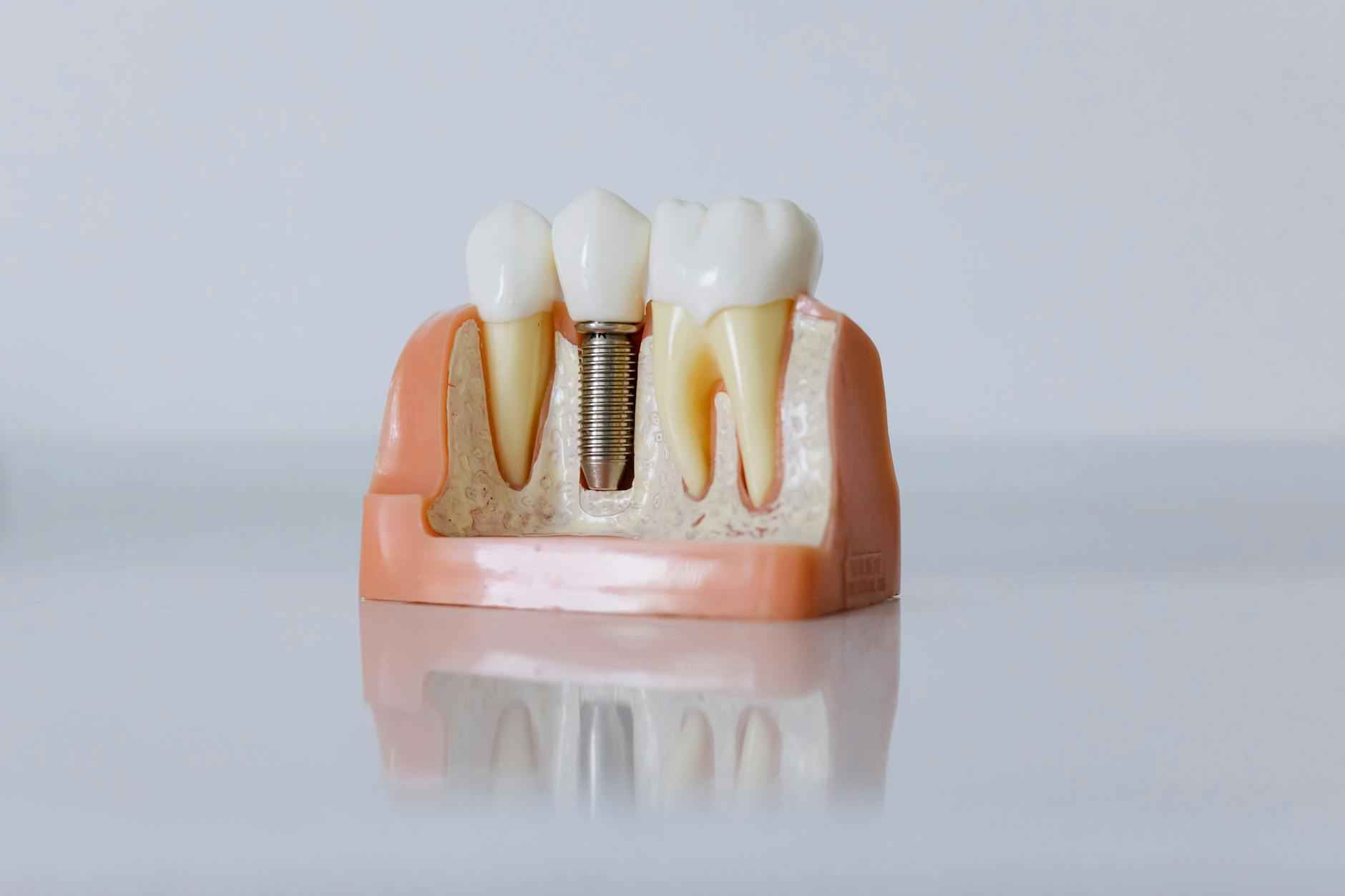
The Importance of Proper Fit
When it comes to dentures, the significance of a proper fit cannot be overstated. A well-fitting denture is not merely a cosmetic enhancement; it plays a crucial role in your comfort, functionality, and overall oral health. Imagine trying to enjoy your favorite meal, only to be hindered by ill-fitting dentures that shift or cause pain. This experience is all too common for those who overlook the importance of a precise fit. In this article, we will delve into why achieving the right fit is essential for your well-being and how it can profoundly enhance your confidence.
Dentures serve as artificial replacements for missing teeth, and their impact on daily activities is significant. From eating and speaking to smiling, dentures facilitate essential functions that contribute to a fulfilling life. A poorly fitting denture can lead to discomfort, difficulty in chewing, and even speech impediments. In some cases, individuals may avoid social situations due to the fear of their dentures slipping or causing embarrassment. This is where the importance of a proper fit comes into play.
Consider the story of Mary, a retiree who had been wearing dentures for several years. Initially, she was thrilled with her new smile, but as time went on, her dentures became loose and uncomfortable. She found herself avoiding social gatherings, feeling self-conscious about her appearance and the possibility of her dentures shifting during conversations. After consulting with her dentist, Mary discovered that a simple adjustment could restore her confidence and comfort. This personal account highlights the profound impact that a well-fitting denture can have on one’s quality of life.
Beyond comfort and aesthetics, the health implications of wearing ill-fitting dentures are significant. A denture that does not fit properly can lead to a host of oral health issues, including:
- Gum Irritation: Constant friction from loose dentures can cause painful sores and inflammation.
- Jaw Pain: An improper fit can lead to uneven pressure on the jaw, resulting in discomfort or even temporomandibular joint (TMJ) disorders.
- Bone Loss: Without the proper support from well-fitting dentures, the jawbone can begin to deteriorate over time, leading to further complications.
These health concerns underscore the necessity of seeking a professional fitting and regular check-ups with your dentist. They can assess the state of your dentures and make necessary adjustments to ensure they remain functional and comfortable.
Achieving the right fit for your dentures involves a collaborative process between you and your dentist. Here’s a breakdown of the steps typically involved:
| Step | Description |
|---|---|
| Initial Consultation | Your dentist will assess your oral health and discuss your specific needs and preferences. |
| Impressions | Custom molds of your mouth will be taken to ensure a precise fit for your dentures. |
| Trial Fitting | You will try on a set of temporary dentures to evaluate comfort and functionality. |
| Final Adjustments | Your dentist will make necessary adjustments based on your feedback before creating the final set. |
This process is essential to ensure your dentures fit snugly and comfortably. Remember, communication with your dentist is key—don’t hesitate to voice any concerns or discomfort during fittings.
In conclusion, the journey to finding the perfect fit for your dentures is a vital one that can significantly impact your daily life. A proper fit not only enhances your comfort and functionality but also plays a crucial role in your overall health and confidence. By prioritizing this aspect of your dental care and working closely with your dentist, you can ensure that your experience with dentures is a positive one, allowing you to enjoy all the joys of life without hesitation.
Signs You Need New Dentures
Recognizing when it’s time to seek a replacement for your dentures is not just a matter of aesthetics; it’s a crucial aspect of maintaining your overall oral health. The journey with dentures can be filled with ups and downs, and understanding the subtle signs that indicate a need for new dentures can make all the difference. Discomfort, difficulty in chewing, and noticeable changes in facial structure are common indicators that your current dentures may no longer serve you well. By learning to identify these signs early, you can take proactive steps to ensure your oral health remains a priority.
Dentures are designed to be durable, but they are not impervious to wear and tear. Over time, you may start to notice that your dentures feel less comfortable than they once did. Perhaps you find yourself adjusting them frequently or experiencing soreness in your gums. These discomforts can stem from various issues, including poor fit or changes in your mouth’s structure. As your jawbone changes over time, it can affect how well your dentures fit, leading to increased discomfort and even pain.
Another significant sign that you may need new dentures is difficulty while chewing. If you find that your favorite foods are becoming increasingly challenging to enjoy, it might be time to reevaluate your dentures. A proper fit is essential for effective chewing, and if your dentures are slipping or causing you to avoid certain foods, it can impact your nutrition and overall well-being.
Additionally, changes in facial structure can be a subtle yet telling sign that your dentures require replacement. Over time, the shape of your face can change due to bone loss in the jaw, which can lead to a sunken appearance. This change not only affects your appearance but can also lead to further dental complications if left unaddressed. If you notice that your dentures no longer provide the support they once did, it may be a signal that you need to consult with your dentist.
Regular check-ups with your dentist are vital for maintaining your oral health and ensuring your dentures fit properly. During these visits, your dentist can assess the condition of your dentures and recommend adjustments or replacements as necessary. They can also provide insights into how well your dentures are functioning and whether they are contributing positively to your oral health.
It’s essential to communicate openly with your dentist about any discomfort or changes you’re experiencing. They can offer tailored advice and solutions that cater to your specific needs. Remember, your dentist is not just a provider of dental care; they are your partner in achieving and maintaining a healthy smile.
Transitioning to new dentures can feel daunting, but it’s important to embrace this change as a step towards better oral health. Many people experience a sense of relief once they invest in new dentures that fit well and enhance their quality of life. The initial discomfort of adjusting to new dentures is often outweighed by the benefits of improved comfort, functionality, and confidence.
Consider the emotional aspect of wearing dentures. Many individuals feel self-conscious about their smiles, but new, well-fitting dentures can dramatically improve your confidence. You might find yourself smiling more freely and engaging in social situations without hesitation. This newfound confidence can have a ripple effect on various aspects of your life, from personal relationships to professional opportunities.
In conclusion, recognizing the signs that indicate a need for new dentures is essential for maintaining your oral health and overall quality of life. By staying vigilant and proactive, you can ensure that your dentures continue to serve you effectively. Regular assessments, open communication with your dentist, and a willingness to embrace change will empower you to make informed decisions regarding your dental health. Remember, a beautiful smile is not just about aesthetics; it’s about feeling confident and healthy.
Assessing Wear and Tear
Over time, dentures are subject to wear and tear, much like any other appliance we use daily. As they age, they may become loose or uncomfortable, leading to various challenges that can affect your quality of life. Regular assessments are vital in identifying whether your dentures require adjustments or even a complete replacement. By staying proactive, you can avoid potential complications that might arise from ill-fitting dentures.
It’s essential to understand that the lifespan of dentures can vary significantly based on several factors, including the materials used, your oral hygiene practices, and how often you visit your dentist. Dentures that are well maintained can last anywhere from five to ten years, but this can be shortened if they are not properly cared for. Neglecting regular check-ups can lead to problems such as sore gums, difficulty chewing, and even changes in facial structure.
So, how do you know when your dentures need attention? There are several signs to watch for:
- Discomfort or Pain: If your dentures start to feel uncomfortable or cause pain, it’s a clear indication that something might be off.
- Difficulty Chewing: Struggling to chew your food can indicate that your dentures are no longer fitting correctly.
- Changes in Appearance: If you notice changes in your facial structure, such as sagging cheeks or a sunken appearance, it may be time to consult your dentist.
- Visible Wear: Cracks, chips, or discoloration can signal that your dentures are wearing out and need replacement.
Addressing these signs early can prevent further complications, such as gum infections or bone loss in the jaw. It’s important to listen to your body and seek professional advice if you notice any of these changes.
Your dentist plays a crucial role in maintaining the health and functionality of your dentures. Regular visits allow for thorough evaluations of your oral health and the condition of your dentures. During these appointments, your dentist can:
- Assess the fit of your dentures and make necessary adjustments.
- Provide professional cleaning to enhance the longevity of your dentures.
- Discuss any changes in your oral health that may affect your dentures.
- Recommend when it might be time for a new set of dentures.
By maintaining an open line of communication with your dentist, you can ensure that your dentures are always in the best possible condition. Remember, your dentist is not just a provider of dental care; they are your partner in achieving optimal oral health.
To extend the lifespan of your dentures, consider implementing the following practical tips:
| Tip | Description |
|---|---|
| Daily Cleaning | Brush your dentures daily with a soft-bristle toothbrush and non-abrasive cleaner to remove food particles and plaque. |
| Soaking | Soak your dentures overnight in a solution designed for denture care to keep them moist and free of bacteria. |
| Regular Check-Ups | Schedule regular dental visits to assess the condition of your dentures and your overall oral health. |
| Avoid Hard Foods | Be mindful of the foods you eat, as hard or sticky foods can damage dentures or cause them to become loose. |
By following these steps and staying vigilant about the condition of your dentures, you can enjoy a comfortable and functional smile for years to come. Remember, the key to maintaining your dentures is consistent care and regular professional evaluations.
In conclusion, understanding the importance of assessing wear and tear on your dentures cannot be overstated. Regular check-ups with your dentist and being aware of the signs that indicate a need for adjustment or replacement can significantly enhance your quality of life. With the right approach and care, you can ensure that your dentures serve you well, allowing you to eat, speak, and smile with confidence.
Consulting with Your Dentist
When it comes to maintaining your oral health, consulting with your dentist is crucial, especially regarding dentures. Your dentist is not just a service provider; they are a vital ally in assessing the condition of your dentures, ensuring they remain functional and comfortable. Regular check-ups are essential, as they allow for professional evaluations tailored specifically to your dental needs. This proactive approach can prevent minor issues from escalating into significant problems, ultimately safeguarding your overall health.
Regular visits to your dentist can make a world of difference in your denture experience. Think of your dentist as your personal coach in the journey of dental health. They possess the expertise to identify potential issues that you might overlook, such as wear and tear, misalignment, or even changes in your gums that could affect the fit of your dentures. The goal is to ensure that your dentures not only fit well but also enhance your quality of life.
During these check-ups, your dentist will conduct a thorough examination. They may take x-rays to assess the underlying structures of your mouth and evaluate how your dentures interact with your gums and remaining teeth. This comprehensive assessment is vital, as it helps in crafting a treatment plan that is uniquely suited to your needs.
Your dentist will provide personalized recommendations based on their evaluations. For instance, they might suggest adjustments to your dentures or even recommend a new pair if your current ones are significantly worn out. The importance of a proper fit cannot be overstated; ill-fitting dentures can lead to discomfort, difficulty in chewing, and even speech issues. By addressing these concerns early, you can avoid unnecessary complications and enjoy a healthier, more confident smile.
Additionally, your dentist can guide you on maintenance practices that are essential for prolonging the life of your dentures. They may recommend specific cleaning solutions or techniques to prevent plaque buildup and staining, ensuring that your dentures remain fresh and hygienic. For example, soaking your dentures in a specialized cleaning solution overnight can help maintain their integrity and appearance.
Establishing a good rapport with your dentist can significantly enhance your dental experience. Don’t hesitate to ask questions during your visits. Whether it’s about the materials used in your dentures or how to care for them effectively, your dentist is there to help. This open line of communication fosters trust and ensures that you feel comfortable discussing any issues that may arise.
Moreover, sharing your experiences and concerns can provide your dentist with valuable insights into how your dentures are performing in your daily life. For instance, if you experience discomfort while eating certain foods, informing your dentist can lead to adjustments that improve your overall comfort.
Consider this: just as you would consult a mechanic for your car’s performance issues, your dentist is the expert for your dental health. They can provide insights that you may not have considered, such as the impact of dietary choices on denture wear or how to manage any adjustments needed as your mouth changes over time.
In conclusion, consulting with your dentist is an essential part of maintaining your dentures. Regular check-ups not only allow for professional evaluations but also empower you with the knowledge and strategies necessary for optimal oral health. By prioritizing these visits and building a strong relationship with your dentist, you can ensure that your dentures remain a source of confidence and comfort in your life.
Exploring Customization Options
When it comes to dentures, one size does not fit all. Many people underestimate the importance of customization in achieving a comfortable and aesthetically pleasing fit. The journey to finding the right dentures can feel overwhelming, but understanding the various options available can make a significant difference. From the materials used to the colors that mimic natural teeth, customization can greatly enhance both the look and feel of your dentures.
Imagine walking into a room and feeling confident about your smile. This is the transformation that well-customized dentures can provide. Customization not only improves comfort but also enhances the overall appearance, allowing individuals to regain their self-esteem. Dentists emphasize that a personalized approach is crucial, as every individual’s mouth is unique. Factors such as the shape of your jaw, the alignment of your remaining teeth, and even your facial structure play a significant role in how dentures should be designed.
For instance, traditional dentures might not fit comfortably for everyone. They can shift during speaking or eating, leading to discomfort or embarrassment. However, with customized dentures, adjustments can be made to ensure a snug fit, reducing the chances of slippage. The right fit can also help maintain the structure of your face, preventing the sunken look that can occur with poorly fitting dentures.
When considering dentures, the choice of materials is paramount. There are several options available:
| Material Type | Advantages | Disadvantages |
|---|---|---|
| Acrylic | Lightweight, affordable, and easy to adjust | Less durable compared to other materials |
| Porcelain | Natural appearance and strong | Heavier and can chip easily |
| Flexible Dentures | Comfortable and adaptable to the mouth | May not be suitable for everyone |
Choosing the right material is essential for both comfort and durability. Additionally, color matching is an important aspect of customization. Dentists often use a shade guide to select the color that best resembles your natural teeth. This attention to detail helps create a seamless smile that enhances your facial aesthetics.
Advancements in dental technology have revolutionized the way dentures are made. Digital impressions and 3D printing allow for a more precise fit. This technology can significantly reduce the time it takes to create your dentures and minimize the number of adjustments needed. With a digital scan of your mouth, the dentist can create a model that captures every contour, ensuring that your dentures fit like a glove.
Moreover, some dental practices offer a trial period where you can wear a temporary set of dentures before the final product is made. This allows you to provide feedback on comfort and aesthetics, ensuring that the final result meets your expectations. The ability to make adjustments based on your experience is invaluable in the customization process.
Another crucial aspect to consider is the emotional journey that comes with transitioning to dentures. Many individuals experience a range of feelings, from anxiety to excitement. It’s important to acknowledge these emotions and communicate openly with your dentist. They can provide reassurance and guidance, helping you navigate this new chapter in your life with confidence.
In conclusion, investing in customized dentures is an investment in your quality of life. The right fit, material, and color can make all the difference in achieving a natural look and feel. As you embark on this journey, remember that you are not alone; your dentist is there to guide you every step of the way. With the right approach, you can embrace your new smile and enjoy the confidence that comes with it.
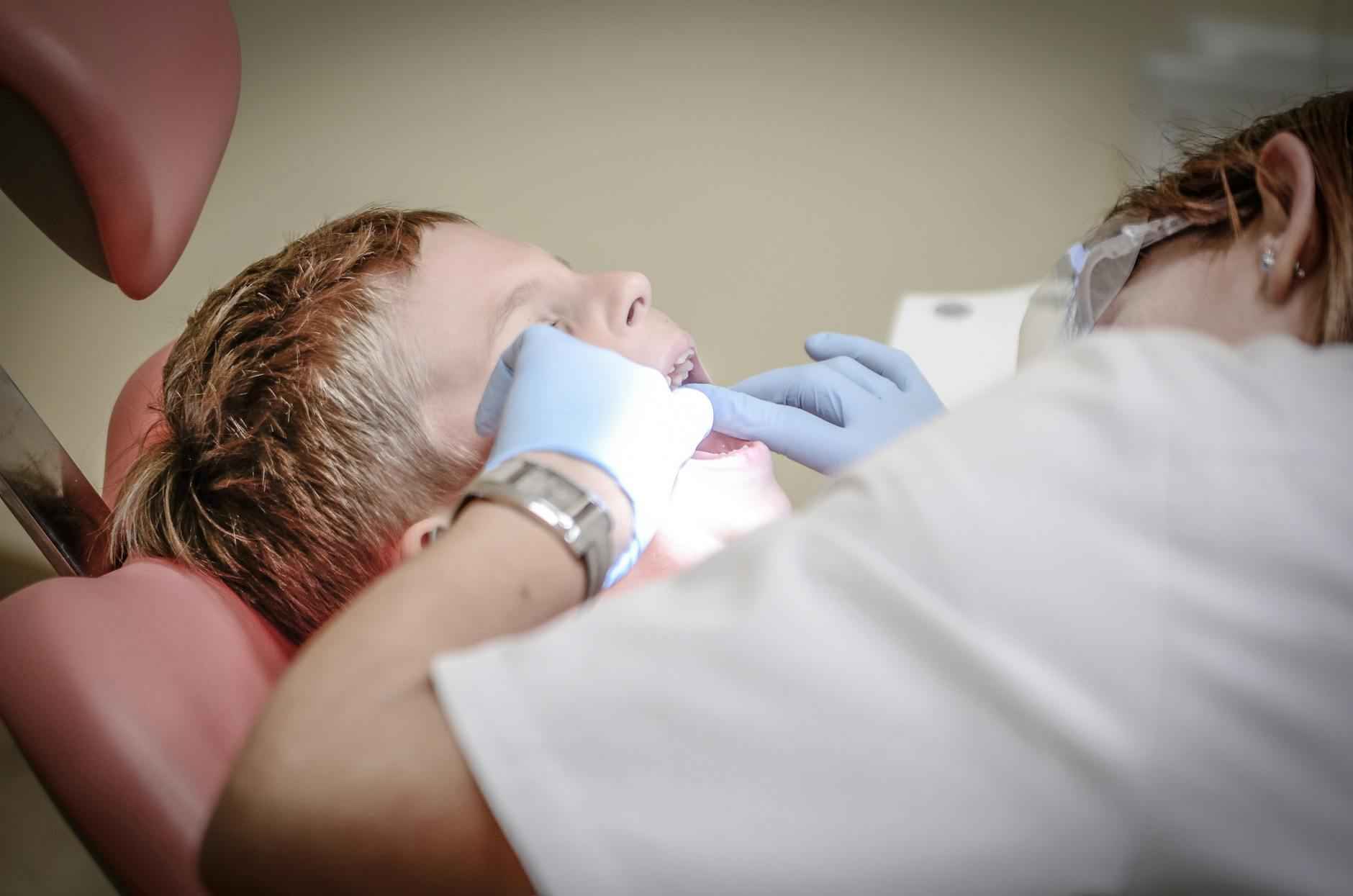
Finding the Right Dentist for Dentures
Finding a qualified dentist is a crucial step in your denture journey, as the right professional can make all the difference in achieving a comfortable and functional fit. When it comes to something as personal as your smile, you deserve a dentist who not only understands your unique needs but also provides personalized care. Navigating this process may seem daunting, but with the right information and approach, you can identify the ideal dental professional to guide you through your denture experience.
Choosing a dentist who specializes in dentures is essential for several reasons. Firstly, a qualified dentist will have the expertise to assess your specific dental situation and recommend the best type of dentures for you, whether they are full or partial. They can explain the differences in materials, designs, and costs, helping you make an informed decision. Additionally, a dentist with experience in dentures will be able to provide insight into the latest techniques and innovations in denture fitting and customization.
Moreover, a dentist who prioritizes patient comfort and care will take the time to understand your concerns and preferences. For instance, they may ask about your lifestyle, dietary habits, and aesthetic goals, ensuring that your dentures not only fit well but also enhance your overall quality of life. This personalized approach can significantly reduce the anxiety often associated with transitioning to dentures.
Your search for the right dentist should begin locally. Start by compiling a list of dental professionals in your area who specialize in dentures. Utilize online resources, such as review websites and social media platforms, to read about other patients’ experiences. Personal recommendations from friends or family can also be invaluable. Consider asking questions like:
- What was your overall experience with the dentist?
- Did the dentist communicate effectively and address your concerns?
- How comfortable were you during the fitting process?
Once you have a shortlist, it’s time to schedule consultations. Meeting potential dentists in person allows you to gauge their expertise and approach. Use this opportunity to ask about their experience with dentures, the techniques they employ, and how they tailor their services to meet individual patient needs.
When consulting with dentists, don’t hesitate to ask about their qualifications and experience specifically related to dentures. A good dentist should be able to provide information about their training, certifications, and years of practice in the field. You may also want to inquire about their membership in professional organizations, which can be a sign of commitment to ongoing education and adherence to industry standards.
Another important aspect to consider is the dentist’s approach to patient care. Look for someone who emphasizes communication and support throughout the process. A dentist who is willing to answer your questions and address your concerns can make a world of difference in your comfort level and overall experience.
Additionally, consider the office environment. Is it welcoming and clean? Are the staff friendly and knowledgeable? A positive atmosphere can greatly enhance your experience as you navigate your denture journey.
Understanding the financial aspect of dentures is also crucial. Costs can vary widely based on the type of dentures, materials used, and the complexity of your dental needs. During your consultations, ask about pricing structures and what is included in the overall cost. It’s also wise to inquire about payment plans or financing options that may be available to help manage expenses.
Moreover, familiarize yourself with your insurance coverage. Many dental plans offer varying levels of coverage for dentures, so it’s important to know what your policy entails. Your dentist’s office can assist you in navigating these details, ensuring you maximize your benefits.
In summary, finding the right dentist for your dentures involves thorough research, personal consultations, and careful evaluation of qualifications and costs. This journey is not just about obtaining a set of dentures; it’s about regaining your confidence and improving your quality of life. By choosing a qualified professional who understands your needs, you can embark on this new chapter with assurance and support.
Researching Local Dentists
Finding the right dentist for dentures is a crucial step in ensuring a comfortable and functional fit. This process can be daunting, but with the right approach, you can navigate it successfully. Starting your search locally is essential; look for dentists who specialize in dentures. Their expertise will be invaluable as you embark on this journey. Online reviews and personal recommendations from friends or family can provide insight into the experiences others have had, guiding you toward professionals who have demonstrated a proven track record.
In today’s digital age, the internet is a treasure trove of information. Websites like Yelp and Google Reviews allow you to read firsthand accounts from patients. These reviews often highlight the quality of care, the dentist’s demeanor, and their proficiency with dentures. For instance, a patient might share how their new dentures improved their quality of life, making it easier to eat and smile confidently. Pay attention to recurring themes in reviews; if multiple patients mention a dentist’s gentle touch or excellent follow-up care, it’s likely a good sign.
Once you have a shortlist of potential dentists, schedule consultations. Meeting with dentists in person is an opportunity to assess their approach and expertise. During these consultations, don’t hesitate to ask questions. Inquire about their experience with dentures, the materials they use, and how they customize fittings for each patient. A good dentist will be more than willing to discuss their methods, ensuring you feel comfortable and informed about your options.
Consider this: you’re not just looking for a dentist; you’re seeking a partner in your dental health journey. Your comfort during this process is paramount. For example, a dentist who takes the time to explain the denture-making process and addresses your concerns can make a significant difference in your overall experience. It’s essential to feel at ease with the professional you choose, as this relationship will be vital in achieving the best results.
As you narrow down your options, take a closer look at the credentials of each dentist. Are they members of reputable dental associations? Do they participate in ongoing education to stay current with advancements in denture technology? These factors can significantly influence the quality of care you receive. A dentist who is dedicated to continuous learning is likely to offer the latest techniques and materials, leading to a better fit and more comfortable experience.
Moreover, consider the dentist’s experience specifically with dentures. Ask how many patients they have treated and if they have specialized training in this area. A seasoned professional will have encountered a variety of cases, equipping them with the skills to handle your unique needs effectively.
Additionally, it’s important to assess the office environment. A clean, well-organized practice can reflect the dentist’s professionalism and attention to detail. During your visit, observe the interactions between staff and patients. A friendly, welcoming atmosphere can make a significant difference in your comfort level.
Finally, don’t forget to discuss financial aspects during your consultations. Understanding the costs associated with dentures, including materials and customization options, is crucial. Ask about payment plans or financing options that may be available, as this can help ease the financial burden.
In conclusion, finding the right dentist for dentures involves diligent research and personal interaction. By leveraging online resources, scheduling consultations, and evaluating credentials, you can make an informed choice. Remember, this journey is about more than just finding a dentist; it’s about ensuring that you receive the best possible care for your oral health. With the right professional by your side, you’ll be well on your way to achieving a comfortable and confident smile.
Scheduling Consultations
When it comes to finding the right dentist for your dentures, scheduling consultations is a crucial step that many people overlook. Meeting potential dentists in person allows you to not only gauge their expertise but also to get a feel for their approach to patient care. This face-to-face interaction can significantly influence your decision-making process. During these consultations, you have the unique opportunity to ask questions that are important to you, specifically regarding their experience with dentures and the techniques they employ. This is your chance to ensure that the professional you choose aligns with your expectations and needs.
As you prepare for these consultations, consider the following aspects that can enhance your understanding and comfort level:
- Experience and Qualifications: Inquire about the dentist’s educational background and how long they have been practicing. A dentist who specializes in dentures will likely have a wealth of experience that can be beneficial for your treatment.
- Technique and Technology: Ask about the specific techniques they use in denture creation and fitting. Modern technology, such as digital impressions and 3D printing, can lead to a more precise fit and better overall results.
- Patient Testimonials: Request to hear about other patients’ experiences. A reputable dentist should be able to provide testimonials or references from satisfied patients.
The consultation process is not just about assessing the dentist’s qualifications; it’s also an opportunity for you to express your concerns and expectations. Prepare a list of questions in advance, which might include:
- What types of dentures do you recommend for my specific situation?
- How do you handle adjustments if my dentures do not fit properly?
- What kind of follow-up care can I expect after my dentures are fitted?
Taking the time to ask these questions can give you a clearer picture of what to expect and help establish a rapport with the dentist. Remember, this is a partnership aimed at achieving the best possible outcome for your oral health.
During your consultation, pay attention to how the dentist communicates with you. Are they attentive to your concerns? Do they take the time to explain things in a way you can understand? A dentist who listens and values your input is essential for a positive experience. Moreover, consider the office environment. A welcoming, clean, and organized space can reflect the level of care you can expect.
It’s also important to discuss financial aspects during your consultation. Understanding the costs involved and your insurance coverage can help you make a well-informed decision. Don’t hesitate to ask about payment plans or financing options if needed. A good dentist will be transparent about costs and willing to work with you to find a solution that fits your budget.
After your consultations, take some time to reflect on your experiences. Jot down your impressions of each dentist, including how comfortable you felt, the clarity of their answers, and any particular aspects that stood out to you. This reflection can be incredibly helpful as you weigh your options.
Choosing the right dentist for your dentures is a significant decision that can affect your oral health and overall quality of life. By taking the time to schedule consultations and ask the right questions, you empower yourself to make an informed choice that aligns with your needs and expectations. Remember, the goal is to find a dentist who not only has the expertise but also makes you feel comfortable and valued as a patient.
Ultimately, your journey towards achieving the perfect fit for your dentures starts with these consultations. Embrace the process, and don’t rush your decision. The right dentist will help you navigate through this journey with care, ensuring that you leave with not just a set of dentures, but a smile that you can feel confident about.
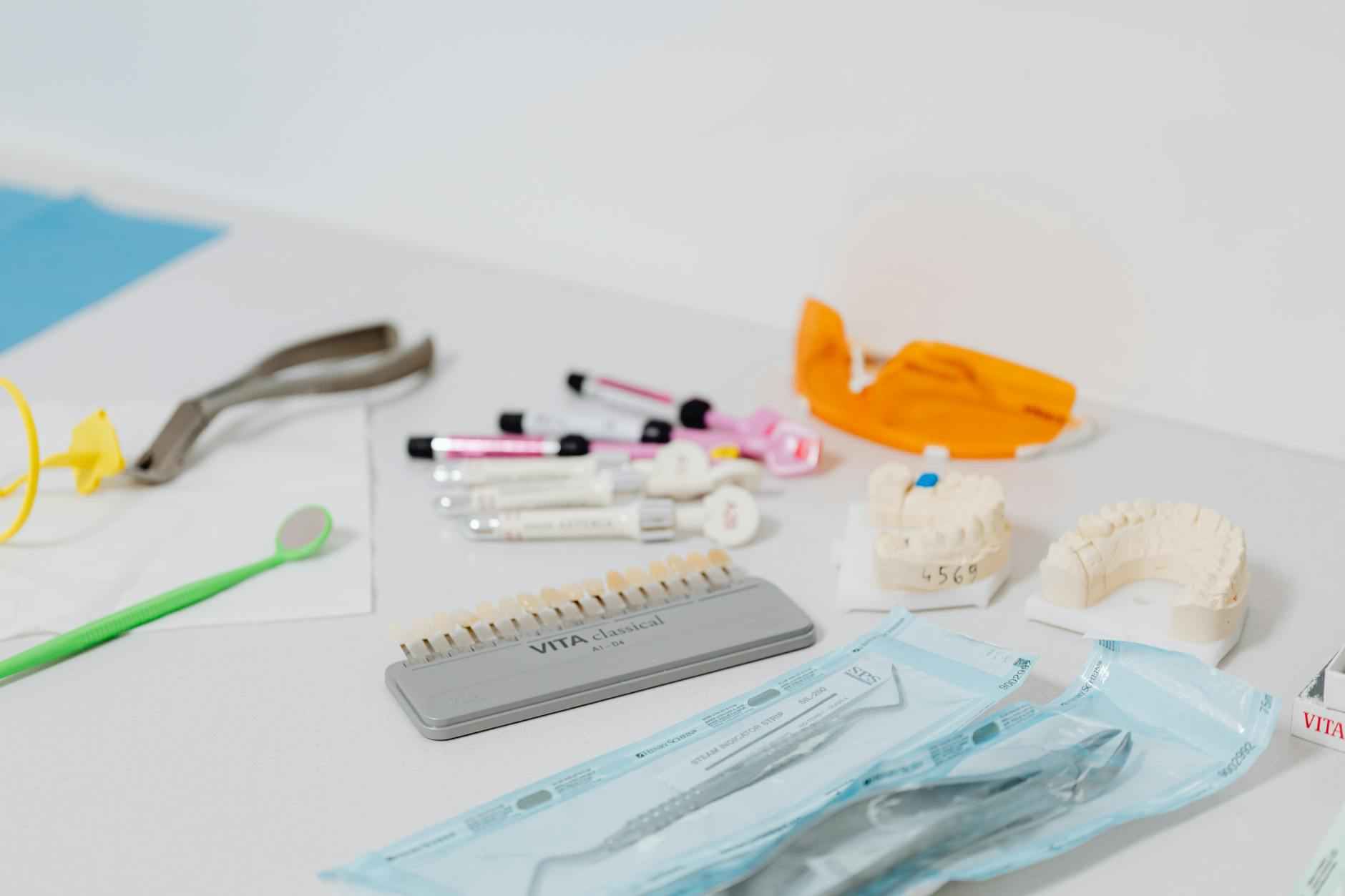
Cost Considerations for Dentures
Understanding the financial implications of dentures is essential for anyone considering this dental solution. The journey to acquiring dentures can often feel overwhelming, not just due to the emotional adjustments involved but also because of the financial considerations that come into play. Factors such as the materials used, the level of customization required, and the extent of insurance coverage can significantly influence the overall cost. In this article, we will delve deeper into these aspects, providing you with a comprehensive understanding of what to expect financially when seeking dentures.
When it comes to the cost of dentures, several key factors come into play:
| Factor | Description | Cost Impact |
|---|---|---|
| Materials | The quality and type of materials used for dentures can vary widely, ranging from basic acrylic to premium porcelain. | Higher quality materials typically increase costs. |
| Customization | Custom-fit dentures are designed to match the unique contours of your mouth, enhancing comfort and aesthetics. | Customization can add to the overall expense. |
| Insurance Coverage | Dental insurance plans often cover a portion of denture costs, but coverage varies significantly. | Understanding your plan is crucial to managing costs. |
Each of these factors plays a crucial role in determining the final price you will pay for your dentures. For example, while basic dentures might be more affordable, investing in higher quality materials and customization can lead to greater comfort and a more natural appearance. As many denture wearers will tell you, the difference in comfort and functionality is often worth the initial investment.
Many people are surprised to learn that dental insurance can significantly alleviate the financial burden of dentures. However, it’s essential to understand the specifics of your plan. Some plans may cover a substantial portion of the cost, while others may only offer limited benefits. To make the most of your insurance:
- Contact your insurance provider to inquire about coverage limits for dentures.
- Ask your dentist’s office about financing options they may offer to help spread the cost over time.
- Consider health savings accounts (HSAs) or flexible spending accounts (FSAs) which can be used for dental expenses.
In addition to insurance, many dental practices provide financing plans that allow patients to pay for their dentures in manageable monthly installments. This can make the process less daunting and more accessible for those on a budget.
While the initial costs associated with dentures can seem high, it’s important to view them as a long-term investment in your health and well-being. Properly fitted dentures can enhance your quality of life, allowing you to eat comfortably, speak clearly, and smile with confidence. Many individuals report that their self-esteem improves significantly after receiving their dentures, which can lead to better social interactions and overall happiness.
Additionally, maintaining good oral health with dentures can prevent further dental issues down the line, which could incur even greater costs. Investing in quality dentures now can save you from more significant expenses related to dental problems in the future.
As you navigate the financial aspects of acquiring dentures, remember that you are not alone. Many others have walked this path and can provide valuable insights and support. Engaging with support groups, whether online or in person, can also help ease the transition, providing emotional comfort and practical advice as you adapt to your new dentures.
In conclusion, understanding the costs associated with dentures is a multifaceted endeavor that requires careful consideration of materials, customization, and insurance coverage. By taking the time to explore your options and engage with your dental provider, you can make an informed decision that not only fits your budget but also enhances your quality of life. Embrace this new chapter with confidence, knowing that a beautiful smile is within reach.
Insurance Coverage and Financing Options
Navigating the world of dental care can often feel daunting, especially when it comes to understanding the financial aspects of treatments like dentures. Many individuals are unaware that dental insurance plans can vary significantly in their coverage for dentures, leading to confusion and unexpected expenses. It’s essential to familiarize yourself with your specific insurance benefits and explore various financing options available through your dentist’s office. By taking these proactive steps, you can alleviate some of the stress associated with dental procedures and make informed decisions regarding your oral health.
Before diving into the world of dentures, it’s crucial to understand the details of your dental insurance plan. Many plans provide coverage for dentures, but the extent of that coverage can differ widely. Some plans may cover a significant portion of the costs, while others may only offer minimal assistance. It’s advisable to contact your insurance provider to clarify the specifics of your plan. Ask questions such as:
- What percentage of the denture cost is covered?
- Are there specific types of dentures that are covered more than others?
- Is there a waiting period for coverage to begin?
- What is the annual maximum benefit for dental procedures?
By gathering this information, you can gain a clearer picture of your financial responsibilities and plan accordingly.
In addition to understanding your insurance coverage, exploring financing options can provide further relief. Many dental offices offer flexible payment plans that allow you to spread the cost of dentures over time. This can be particularly beneficial if you are facing significant out-of-pocket expenses. Some common financing options include:
- In-House Payment Plans: Many dentists provide their own financing plans that allow you to make monthly payments, often with little to no interest.
- Third-Party Financing: Companies like CareCredit specialize in healthcare financing, offering credit specifically for medical and dental expenses.
- Flexible Spending Accounts (FSAs): If your employer offers an FSA, you can set aside pre-tax dollars to cover dental expenses, including dentures.
Each of these options has its pros and cons, so it’s worth discussing them with your dentist’s office to determine the best fit for your financial situation.
While the initial costs associated with dentures can be intimidating, it’s essential to view this purchase as a long-term investment in your health and well-being. A well-fitted set of dentures can significantly enhance your quality of life, restoring your ability to eat, speak, and smile confidently. Consider the following:
- Improved Quality of Life: Dentures can help restore your facial structure and improve your ability to chew food, which can lead to better nutrition.
- Enhanced Confidence: A beautiful smile can boost your self-esteem and encourage social interactions.
- Potential Health Benefits: Maintaining proper oral health can prevent further dental issues and associated medical costs in the future.
When you weigh these factors against the initial costs, dentures can be seen as a worthwhile investment in your overall health and happiness.
In conclusion, understanding your insurance coverage and exploring financing options can significantly ease the financial burden of obtaining dentures. By being proactive and informed, you can navigate this process with confidence, ensuring that you achieve not only a functional smile but also one that enhances your quality of life. Remember, your dentist is there to support you through this journey, so don’t hesitate to ask questions and seek guidance as you explore your options.
Weighing Long-Term Investment
When considering dentures, many individuals initially focus on the upfront costs, which can indeed appear intimidating. However, it’s crucial to shift your perspective and view dentures as a long-term investment in both your health and your self-esteem. The benefits of a well-fitting set of dentures extend far beyond mere aesthetics; they can profoundly influence your overall quality of life.
Imagine enjoying a meal without the constant worry of discomfort or embarrassment. With the right dentures, this can be your reality. The investment you make today can lead to improved confidence and a more vibrant social life. You’ll find yourself smiling more, engaging in conversations without hesitation, and savoring the flavors of your favorite foods once again.
While the initial cost might make you hesitate, consider the long-term implications of your decision. Quality dentures can last several years, providing you with a functional and comfortable solution for your dental needs. Think about the expenses associated with ongoing dental problems that could arise from not addressing tooth loss. Investing in dentures now can save you from more significant expenses in the future, such as dental implants or other restorative procedures.
Moreover, a good fit is essential. Ill-fitting dentures can lead to discomfort, soreness, and even issues with your jaw alignment. These complications can affect not only your oral health but also your overall well-being. By prioritizing a proper fit, you’re investing in your health, which is invaluable. The right dentures can restore your ability to chew effectively, speak clearly, and smile confidently.
Transitioning to dentures can be an emotional journey. It’s normal to feel a mix of excitement and apprehension. Many people find that their self-image improves dramatically once they have a functional set of dentures. The psychological benefits of feeling confident in your smile cannot be overstated. A study published in the Journal of Prosthetic Dentistry highlighted how individuals with dentures reported higher levels of satisfaction with their appearance and social interactions.
Consider the story of Jane, a 62-year-old retiree who had been living with missing teeth for years. She often avoided social gatherings, feeling self-conscious about her smile. After investing in a quality set of dentures, Jane experienced a remarkable transformation. Not only did she regain her ability to enjoy meals with friends, but she also found herself participating in community events and even volunteering at the local shelter. Jane’s story is just one of many that illustrate how dentures can enhance your quality of life.
To ensure you’re making the best choice, it’s essential to consult with a qualified dentist who specializes in dentures. They can provide personalized recommendations based on your unique dental needs. During your consultation, don’t hesitate to ask about the materials used, the customization options available, and the expected lifespan of the dentures.
Additionally, consider seeking testimonials from previous patients. Hearing about others’ experiences can provide valuable insights and help you feel more comfortable with your decision. Remember, investing in your dental health is not just about the immediate costs; it’s about the long-term benefits that come with a well-fitted, comfortable set of dentures.
| Factors Influencing Cost | Details |
|---|---|
| Material Quality | Higher-quality materials typically offer better durability and aesthetics. |
| Customization | Personalized fittings and adjustments can enhance comfort and appearance. |
| Insurance Coverage | Check with your provider to see what aspects of denture care are covered. |
| Maintenance Services | Regular check-ups and adjustments can help extend the life of your dentures. |
In conclusion, while the initial investment in dentures may seem significant, the long-term benefits far outweigh the costs. By prioritizing a proper fit and consulting with experienced professionals, you can ensure that your dentures provide you with the comfort, functionality, and confidence you deserve. Embrace this investment in your health and well-being; your future self will thank you.
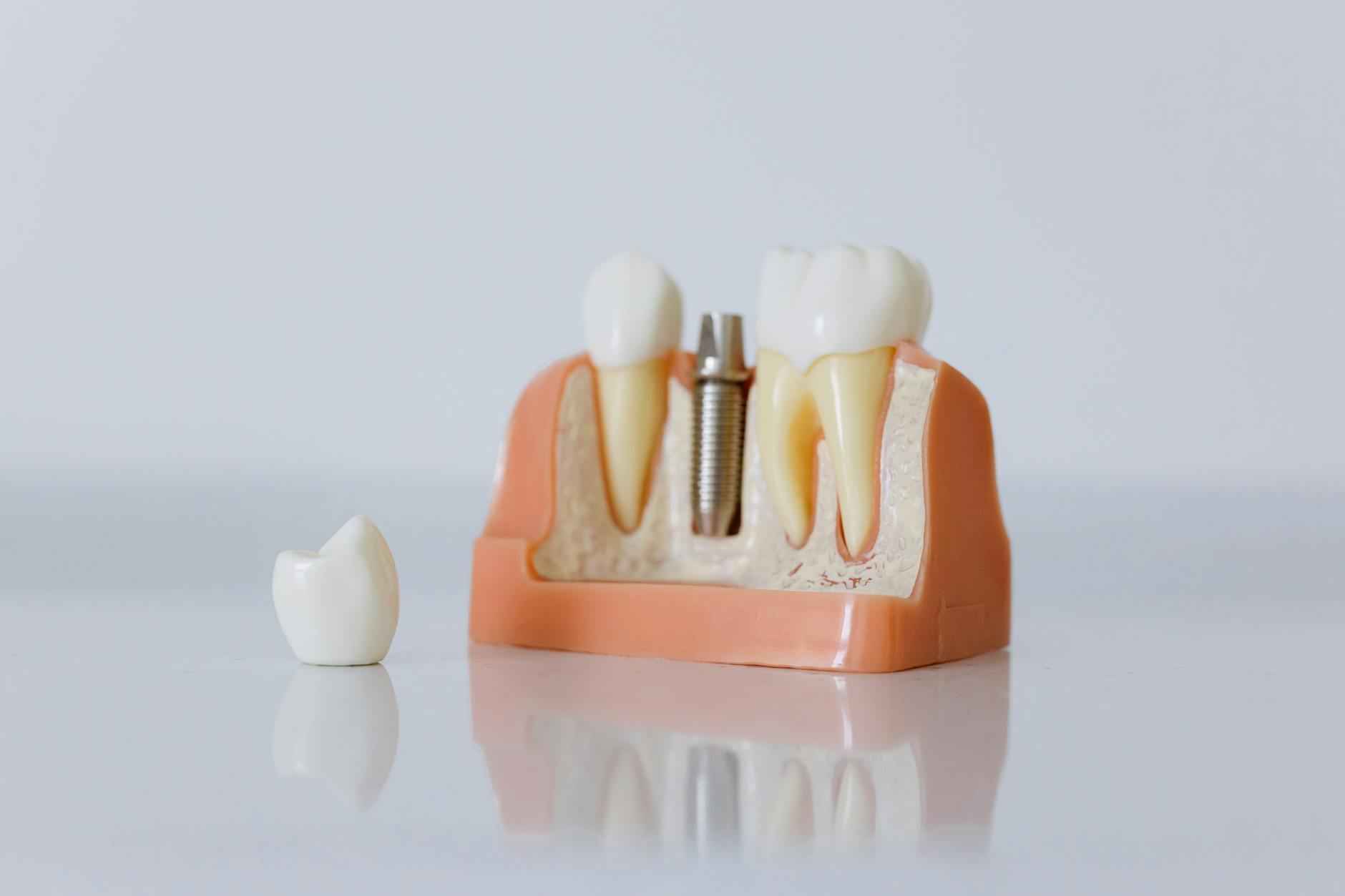
Maintenance and Care for Your Dentures
Maintaining your dentures is crucial for ensuring their longevity and keeping them looking their best. Just like you would care for natural teeth, your dentures require attention and proper cleaning to function effectively and maintain your oral health. This involves establishing a daily maintenance routine and employing effective cleaning techniques. By doing so, you’ll not only prolong the life of your dentures but also enhance your overall comfort and confidence.
Daily care for your dentures is essential in preventing plaque buildup and unpleasant odors. Start by rinsing your dentures under warm water after each meal to remove food particles. This simple step can significantly reduce the risk of bacteria growth. For a more thorough cleaning, consider using a soft-bristled toothbrush specifically designed for dentures, paired with a mild, non-abrasive cleanser. Avoid using regular toothpaste, as it can be too harsh and may scratch the surface of your dentures.
Here’s a quick guide to an effective daily cleaning routine:
| Step | Action |
|---|---|
| 1 | Rinse dentures under warm water after meals. |
| 2 | Use a soft-bristled toothbrush and a denture cleaner. |
| 3 | Gently brush all surfaces of the dentures. |
| 4 | Rinse thoroughly with warm water. |
| 5 | Soak dentures overnight in a suitable solution. |
Additionally, soaking your dentures overnight in a denture solution can help keep them moist and free from stains. This practice not only aids in maintaining their shape but also ensures they’re ready for use the next day.
When not in use, proper storage of your dentures is vital to prevent damage and maintain their shape. Always store your dentures in a container filled with water or a denture-soaking solution. This helps to keep them from drying out and warping. Avoid using hot water, as it can cause the material to lose its form. It’s also best to keep your dentures out of reach of pets or small children, as they can easily be damaged or misplaced.
Consider using a dedicated denture storage case that is both secure and easy to access. Labeling the container can also help you remember where your dentures are, especially during travel or when you’re on the go.
According to dental professionals, regular check-ups with your dentist are crucial for maintaining your dentures. They can assess the fit and condition of your dentures and recommend adjustments if necessary. Dr. Jane Smith, a renowned prosthodontist, emphasizes, “Just like natural teeth, dentures require regular professional care to ensure they fit well and function correctly. Neglecting them can lead to discomfort and oral health issues.”
Furthermore, it’s essential to be aware of the signs indicating your dentures may need professional attention. These can include discomfort, difficulty chewing, or visible wear and tear. Addressing these issues promptly can prevent further complications and ensure your dentures continue to serve you well.
In conclusion, the care and maintenance of your dentures are paramount for their longevity and your comfort. By establishing a daily cleaning routine, ensuring safe storage, and consulting with your dentist regularly, you can keep your dentures in optimal condition. Remember, a little effort goes a long way in maintaining that confident smile and ensuring your dentures remain a functional part of your daily life.
Daily Cleaning Routines
Maintaining good oral hygiene is crucial, especially for denture wearers. Establishing a daily cleaning routine not only helps in preventing plaque buildup but also combats unpleasant odors. By adopting effective cleaning methods and using the right products, you can ensure that your dentures remain fresh, hygienic, and comfortable to wear. This article delves into practical tips and techniques that will help you keep your dentures in pristine condition.
The significance of a daily cleaning routine cannot be overstated. Just like natural teeth, dentures are susceptible to plaque and bacteria, which can lead to gum disease and other oral health issues. When dentures are not cleaned regularly, food particles can accumulate, leading to bad breath and discomfort. To maintain both your oral health and the longevity of your dentures, incorporating a simple cleaning regimen into your daily routine is essential.
Consider this scenario: Imagine enjoying a meal with friends, only to feel self-conscious about your breath or the cleanliness of your dentures. This can be avoided with a little diligence. A consistent cleaning routine not only boosts your confidence but also enhances your overall well-being.
Cleaning your dentures should be a straightforward process. Here are some effective methods to ensure your dentures stay clean:
- Rinse After Meals: After every meal, it’s vital to rinse your dentures under running water to remove any food particles that may have lodged between the teeth.
- Brush Daily: Use a soft-bristled toothbrush specifically designed for dentures. Gently brush your dentures at least once a day to remove plaque and prevent staining. Avoid regular toothpaste as it may be too abrasive; instead, opt for a cleanser made for dentures.
- Soak Overnight: Soaking your dentures in a denture-cleaning solution overnight not only helps in removing stubborn stains but also keeps them hydrated, preventing them from warping.
Incorporating these steps into your daily routine can make a significant difference in the cleanliness and freshness of your dentures. Not only will you feel more comfortable, but you will also be promoting your oral health.
Choosing the right products is crucial for effective denture care. Here’s a list of recommended items that can enhance your cleaning routine:
| Product Type | Recommended Brands |
|---|---|
| Denture Cleanser | Polident, Efferdent |
| Soft-Bristled Toothbrush | Dr. B Dental Solutions, Denture Brush by iSmile |
| Denture Soaking Solution | Polident Overnight, Efferdent |
These products are specifically designed to keep your dentures clean and free from harmful bacteria. Always read the instructions on the packaging to ensure you’re using them correctly for optimal results.
Additionally, don’t hesitate to consult your dentist for personalized recommendations. They can provide insights tailored to your specific needs and may suggest other products that work best for your denture type.
Remember, the goal is to maintain not just the appearance of your dentures but also their functionality and your overall oral health. Proper cleaning can prevent costly repairs or replacements down the line.
In conclusion, establishing a consistent daily cleaning routine for your dentures is a small but impactful step toward ensuring they remain fresh and hygienic. By understanding the importance of cleaning, utilizing effective methods, and choosing the right products, you can enjoy your smile with confidence. After all, a bright, clean smile is not just about aesthetics; it’s a reflection of your commitment to your health and well-being.
Storing Dentures Safely
When it comes to maintaining your dentures, the importance of proper storage cannot be overstated. Just like a cherished pair of shoes or a favorite book, your dentures deserve the utmost care when they are not in use. Proper storage not only prevents damage but also helps maintain their shape, ensuring they are always ready for you to wear comfortably. This article delves into the best practices for storing dentures, offering expert insights and practical tips to keep your dental prosthetics in top condition.
Imagine this: you’ve just finished a meal, and you carefully remove your dentures, placing them on the counter. In a moment of distraction, they get knocked off and land on the floor. The horror! This scenario highlights why proper storage is essential. Dentures are delicate, and improper handling can lead to cracks, warping, or misalignment. To avoid such mishaps, it’s crucial to establish a safe and effective storage routine.
To ensure your dentures remain in excellent condition, follow these guidelines:
- Rinse Before Storing: Always rinse your dentures with cool water to remove any food particles. This simple step prevents bacteria buildup and keeps your dentures fresh.
- Use a Denture Solution: If you’re not wearing your dentures for an extended period, soak them in a denture cleaning solution. This helps to disinfect and maintain their integrity.
- Store in a Safe Place: Choose a designated storage container that is sturdy and secure. A denture case with a lid is ideal, as it protects against dust and accidental damage.
- Keep Them Moist: Dentures should never be allowed to dry out completely. Always store them in a moist environment, either in a cleaning solution or plain water, depending on the manufacturer’s instructions.
- Avoid Hot Water: Never use hot water to clean or store your dentures, as it can warp the material. Stick to lukewarm or cool water to maintain their shape.
Even with the best intentions, mistakes can happen. Here are some common pitfalls to avoid:
- Leaving Dentures Exposed: Leaving your dentures out in the open can lead to accidents or contamination. Always store them securely when not in use.
- Using Harsh Chemicals: Avoid using bleach or abrasive cleaners on your dentures, as they can cause irreversible damage. Stick to products specifically designed for denture care.
- Ignoring Regular Checks: Make it a habit to regularly check your dentures for any signs of wear or damage, especially if they have been stored for a while. Early detection can prevent larger issues down the line.
As a personal anecdote, a friend of mine once shared how she neglected to store her dentures properly while on vacation. After a day of exploring, she returned to find them dried out and warped. It took several adjustments and a lot of frustration to get them back to normal. This experience taught her the importance of being diligent about denture care, especially when traveling.
Maintaining your dentures goes beyond just proper storage; regular consultations with your dentist are key. Your dentist can offer personalized advice on how to care for your specific type of dentures and recommend the best cleaning and storage practices. Additionally, they can help identify any potential issues early on, ensuring your dentures remain functional and comfortable.
In conclusion, taking the time to properly store your dentures can significantly extend their lifespan and enhance your overall experience. By following these best practices, avoiding common mistakes, and consulting with your dentist regularly, you can ensure that your dentures are always ready for use. A little care goes a long way in maintaining your smile and confidence.
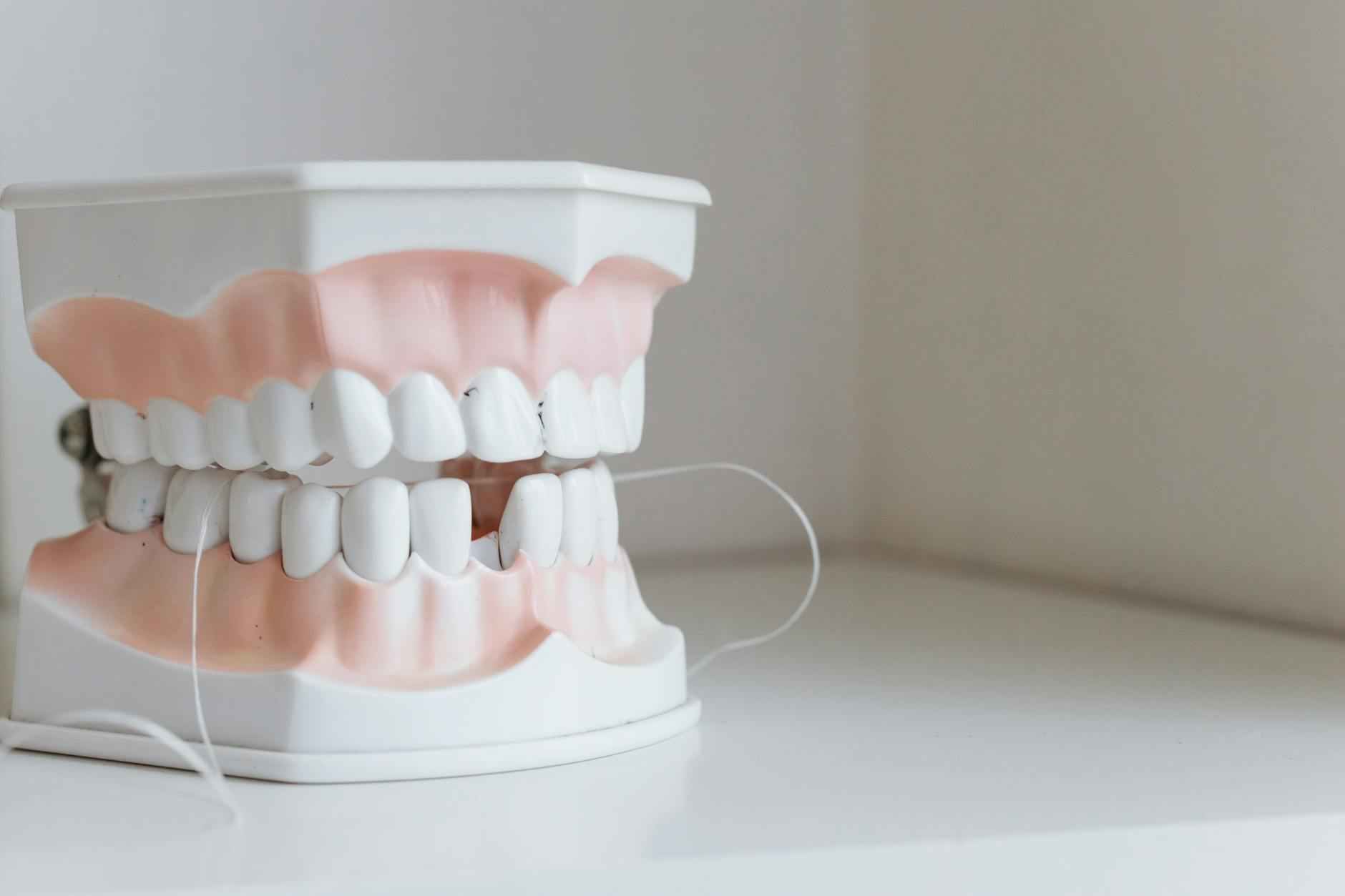
Embracing Your New Smile
Transitioning to dentures can often feel like a significant life change, filled with a mix of emotions ranging from anxiety to anticipation. Many individuals facing this journey experience a sense of loss, particularly if they have had to part with their natural teeth. However, it’s essential to embrace these changes with a sense of confidence and positivity. With the right mindset and support, achieving a beautiful smile is entirely possible, and can even be a transformative experience.
For many, the thought of wearing dentures brings about feelings of vulnerability. It’s not just about losing teeth; it’s about the potential impact on one’s self-image and daily life. Imagine the first time you catch a glimpse of your new smile in the mirror; it might feel surreal. It’s crucial to acknowledge these feelings and understand that they are a natural part of the process. Seeking support from friends, family, or even online communities can provide a much-needed boost during this transition.
Consider the story of Sarah, a 62-year-old woman who recently transitioned to dentures. Initially, she felt overwhelmed and self-conscious, worried about how others would perceive her. However, after joining a local support group, she found camaraderie among others who shared similar experiences. “It was comforting to hear that I wasn’t alone,” she shared. “We laughed, shared tips, and celebrated our new smiles together.” This sense of community can be invaluable in helping individuals adjust to their new reality.
Adjusting to dentures may take time, but there are several strategies to help build your confidence. One effective method is to practice speaking and smiling in front of a mirror. This simple exercise can help you become more accustomed to how your new smile looks and feels. Additionally, consider taking photos of yourself during this practice. Over time, you may find that you start to embrace your new appearance.
Another helpful tip is to engage in activities that make you feel good about yourself. Whether it’s dressing up for an event or simply enjoying a day out with friends, the more you focus on positive experiences, the more your confidence will grow. Remember, it’s not just about the physical aspect; it’s also about how you feel inside. Embrace your new smile as a symbol of resilience and adaptability.
Finding community support can significantly enhance your denture experience. Many individuals find solace in connecting with others who understand the challenges and triumphs of wearing dentures. Local or online support groups can provide a platform to share experiences, ask questions, and gain encouragement. These groups often serve as a safe haven where individuals can express their feelings without judgment.
In addition to emotional support, these groups can offer practical advice on denture care, maintenance, and even social situations. For example, some members might share tips on how to enjoy meals without feeling self-conscious, or they may recommend specific cleaning products that work best for maintaining dentures. This exchange of knowledge can be incredibly empowering and can help ease the transition.
Moreover, engaging with others who have successfully navigated the transition can inspire hope and positivity. Hearing success stories can remind you that a beautiful smile is not only possible but within your reach. Embrace the opportunity to learn from others and share your journey as well.
Ultimately, transitioning to dentures is not just about the physical change but also about embracing a new chapter in life. With the right approach, support, and a positive mindset, you can navigate this journey successfully. Remember, your smile is a reflection of your spirit, and it’s never too late to shine.
Building Confidence with Your New Dentures
Transitioning to dentures is a significant life change, often accompanied by a mix of excitement and apprehension. Many individuals find themselves feeling self-conscious as they adjust to their new smile, which is entirely normal. This emotional journey can be daunting, but there are effective strategies to help you build confidence and embrace your new appearance. By incorporating practical techniques into your daily routine, you can turn this transition into a positive experience that enhances your overall well-being.
One of the most effective ways to boost your confidence is through practice. Spend time in front of a mirror, smiling and speaking aloud. This exercise allows you to familiarize yourself with how your dentures feel and look. You might even consider reciting your favorite quotes or telling a story to yourself. This not only helps you become more comfortable with your new smile but also gives you the chance to perfect your speech. Remember, confidence grows with familiarity.
Moreover, consider recording yourself during these practice sessions. Listening to your speech can provide valuable insights into your progress and help you identify areas for improvement. Over time, you’ll notice that the initial awkwardness begins to fade, replaced by a sense of ease and confidence.
Another vital aspect of building confidence is connecting with others who share similar experiences. Joining a support group, whether online or in-person, can be incredibly beneficial. These communities allow you to share your feelings, ask questions, and gain encouragement from those who understand the journey you are on. Hearing stories from others who have successfully navigated this transition can provide inspiration and reassurance.
In addition to support groups, consider involving family and friends in your journey. Their positive reinforcement and understanding can help alleviate any self-consciousness you may feel. Invite them to participate in your practice sessions or simply share your thoughts about your new smile. Having a supportive network can make all the difference in your confidence levels.
It’s essential to acknowledge that the emotional aspect of transitioning to dentures is just as important as the physical adjustments. Many individuals report feeling a sense of loss or grief for their natural teeth. This emotional turmoil is valid and should be addressed. Take the time to reflect on your feelings and consider speaking with a professional if necessary. Sometimes, simply expressing your thoughts can lead to significant relief.
As you navigate this new chapter, remember that it’s okay to feel a mix of emotions. Embrace the journey with a sense of humor; after all, laughter can be a powerful tool in overcoming self-doubt. Share a lighthearted moment with friends about your experiences, and don’t hesitate to laugh at the little mishaps along the way. A positive attitude can be contagious, helping you to feel more at ease in social situations.
Additionally, consider adding some fun to your routine. Experiment with different lip colors or accessories that complement your new smile. This can serve as a creative outlet and help you express your personality, making the adjustment feel less daunting. Remember, your smile is a reflection of who you are, and with time, you will find ways to make it uniquely yours.
Finally, keep in mind that confidence is a journey, not a destination. It takes time to adjust, and there will be ups and downs along the way. Celebrate your progress, no matter how small, and remind yourself that every smile you share is a step towards embracing your new self. With each passing day, you will become more comfortable and confident in your new smile, transforming your experience into a positive and empowering one.
Connecting with Support Groups
Transitioning to dentures can often feel like an overwhelming journey, filled with uncertainties and adjustments. However, finding a supportive community can significantly enhance this experience. Connecting with others who are navigating similar challenges can provide not only practical advice but also emotional encouragement. Whether you seek local groups or online forums, the power of shared experiences can be transformative.
When embarking on the denture journey, many individuals find themselves grappling with feelings of isolation. It’s not uncommon to feel self-conscious or anxious about the changes that come with wearing dentures. This is where community support becomes invaluable. Engaging with others who understand your situation can alleviate feelings of loneliness and foster a sense of belonging.
Imagine attending a local support group meeting where everyone is eager to share their stories. You hear firsthand accounts of triumphs and challenges, and you realize that you are not alone in this journey. These interactions can be incredibly uplifting, as they remind you that many have walked this path before you and emerged stronger.
There are numerous avenues to explore when seeking community support. Local support groups are often hosted by dental clinics or community centers. These gatherings provide a safe space for individuals to share their experiences, ask questions, and receive guidance from others who have faced similar issues. The camaraderie built in these groups can lead to lasting friendships and a network of support.
On the other hand, online support groups offer the convenience of connecting with others from the comfort of your home. Websites and social media platforms host various forums where individuals can post questions, share advice, and provide encouragement. These online communities often include members from diverse backgrounds, enriching your understanding of different experiences and solutions.
To find a suitable support group, consider the following steps:
- Research Local Options: Check with your dentist or local dental associations for recommendations on support groups in your area.
- Utilize Social Media: Search for groups on platforms like Facebook or Reddit that focus on dentures and oral health.
- Ask for Referrals: Speak with friends or family members who may know of support groups or online forums.
One of the most rewarding aspects of connecting with a support group is the ability to share your experiences. Whether you’re struggling with discomfort, adjusting to new eating habits, or learning about proper denture care, discussing these topics with others can lead to valuable insights. You may discover new cleaning techniques or dietary adjustments that significantly improve your denture experience.
Moreover, sharing your journey can be cathartic. It allows you to express your feelings and challenges openly, fostering a sense of relief and understanding. You might even find that your story resonates with someone else, creating a supportive dialogue that benefits both parties.
As you engage with your support group, consider the following tips to maximize your experience:
- Be Open and Honest: Share your thoughts and feelings candidly to foster a supportive environment.
- Listen Actively: Pay attention to others’ experiences and advice, as they may offer insights you hadn’t considered.
- Participate Regularly: Consistent involvement can help you build deeper connections and enhance your support network.
As you navigate the world of dentures, remember that you are not alone. The journey may be challenging, but the support of a community can make all the difference. Embrace the opportunity to connect with others, share your story, and learn from their experiences. By doing so, you not only enhance your own denture experience but also contribute positively to the journeys of others.
Ultimately, finding community support is about creating a network of understanding and encouragement. Whether through local meetings or online interactions, the relationships you build can empower you to face the challenges ahead with confidence and resilience. So take that first step—reach out, connect, and embrace the journey together.














